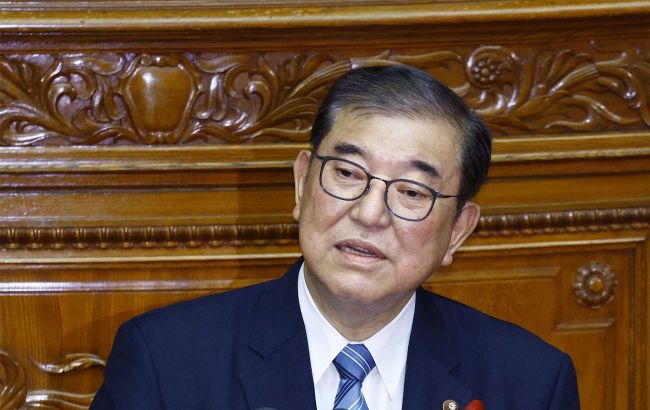New Japanese PM promises to maintain support for Ukraine and sanctions against Moscow
 Photo: Shigeru Ishiba (Getty Images)
Photo: Shigeru Ishiba (Getty Images)
Japan's support for Ukraine will continue The sanctions imposed on Russia will remain in place, according to Japanese Prime Minister Shigeru Ishiba.
As for foreign policy, Ishiba reiterated that Japan's alliance with the United States will remain the cornerstone of Tokyo's approach to addressing growing regional security challenges. Japan will also continue to build up its defense capabilities, Ishiba said.
Amid tensions with China over recent military incursions and the murder of a Japanese child in China, Ishiba said he would seek constructive and stable relations with Beijing while defending Japan's interests.
Speech
In his first speech to parliament, Ishiba emphasized that his top economic priority is to overcome deflation and put the country on a path of stable growth.
“I will decisively end deflation and build a future for our economy,” Ishiba said. In his speech, he largely emphasized the policy positions he has outlined in recent weeks during his campaign for national leadership, which show continuity with his predecessor.
Ishiba said he would seek to raise wages, boost productivity, support rural revitalization, and turn Japan into an “investment powerhouse” by continuing to encourage the conversion of private savings into investment. Speaking of policies, Ishiba began his speech by promising to ensure that his party would increase transparency and play by the rules.
Ishiba's speech was effectively a program for voters ahead of the October 27 general election, from which he intends to secure a mandate.
The Prime Minister also hopes to put an end to any long-standing voter discontent over a political funding scandal that has rocked the ruling Liberal Democratic Party and eroded support for predecessor Fumio Kishida.
Ishiba said that he would introduce a “happiness index” as a way to measure individual well-being and prosperity, an idea that has become popular around the world in recent years and echoes the “gross national happiness” index introduced by Bhutan in the 1970s.
Change of Prime Minister
In August, Japan's Prime Minister Fumio Kishida decided to resign. He did not want to run for election from the ruling Liberal Democratic Party in September.
Ishiba was elected chairman of the ruling Liberal Democratic Party in late September. He was then confirmed by the parliament and became the new Prime Minister of Japan.
Since the beginning of Russia's full-scale invasion of Ukraine, Japan has provided Ukraine with $3.6 billion in grants and loans. Only the EU has allocated more aid - $19.5 billion and the US - $15.5 billion.

